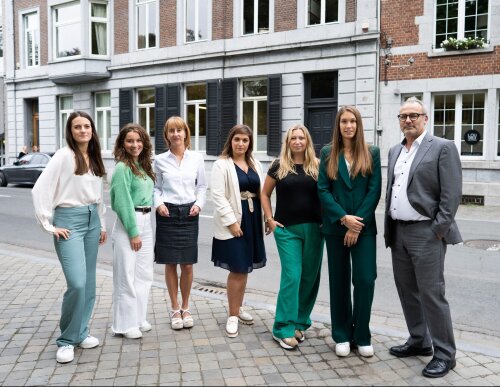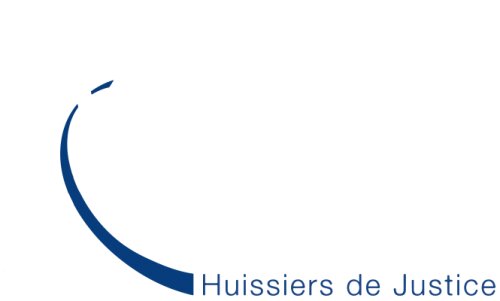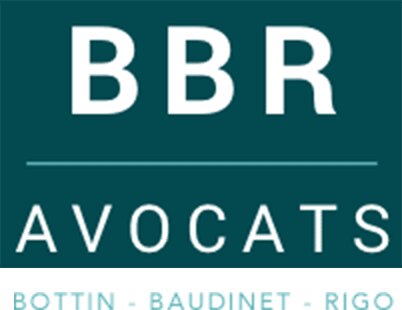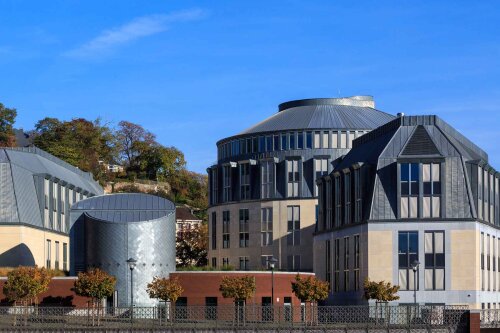Best Real Estate Due Diligence Lawyers in Liège
Share your needs with us, get contacted by law firms.
Free. Takes 2 min.
Free Guide to Hiring a Real Estate Lawyer
List of the best lawyers in Liège, Belgium
About Real Estate Due Diligence Law in Liège, Belgium
Real estate due diligence in Liège, Belgium, refers to the process of thoroughly investigating a property before acquiring, leasing, or investing in it. This legal process ensures that buyers, investors, and tenants are fully informed about the legal, technical, and financial status of the property. Due diligence helps uncover potential risks, such as regulatory issues, ownership disputes, or restrictions affecting the use or value of the real estate. In Liège, as throughout Belgium, the process is crucial given the complexity of property laws, administrative requirements, and the frequent need for compliance with various urban planning and environmental regulations.
Why You May Need a Lawyer
Several situations may require the expertise of a lawyer for real estate due diligence in Liège. These include:
- Purchasing residential or commercial property, especially if it is your first transaction in Belgium.
- Reviewing property titles and ensuring there are no legal disputes or claims on the property.
- Analyzing existing lease agreements or negotiating rental contracts.
- Conducting checks on planning permissions, zoning laws, or building regulations compliance.
- Investigating any mortgages, liens, or financial obligations connected to the property.
- Identifying potential tax implications or costs associated with the transaction.
- Assessing environmental risk factors, such as soil contamination or protected heritage status.
- Handling cross-border transactions or foreign investment in Liège real estate.
A lawyer can help prevent costly errors, negotiate terms to your advantage, and ensure a smooth transfer of ownership or rights.
Local Laws Overview
Real estate due diligence in Liège is guided by Belgian federal law, Walloon regional regulations, and local municipal rules. Key aspects include:
- Title and Ownership Verification - Checking that the seller is the legitimate owner, free of undisclosed claims or disputes.
- Urban Planning Compliance - Ensuring that the property complies with zoning plans and has the necessary permits for current or intended use.
- Technical Due Diligence - Assessing the physical condition of the property, compliance with safety and habitability standards, and checking for hidden defects.
- Financial and Mortgage Checks - Verifying that all taxes have been paid and identifying outstanding loans or liens.
- Environmental Regulations - Checking for potential environmental liabilities, such as pollution or protected status.
- Pre-Sale Information - The seller is legally required to provide certain documents before the sale, including an energy performance certificate, planning information, and the property's cadastral extract.
Failing to comply with these legal requirements can lead to serious complications, including financial loss or legal disputes.
Frequently Asked Questions
What is real estate due diligence?
Real estate due diligence is the process of verifying all legal, financial, and technical aspects of a property before finalizing a transaction. It helps ensure the property is free from legal issues and that the buyer is aware of any risks.
Is due diligence mandatory for all property transactions in Liège?
While not always legally required, due diligence is highly recommended for every property transaction. Certain disclosures and checks, however, are mandatory by law.
What documents are required during real estate due diligence?
Some of the key documents include the title deed, cadastral extract, urban planning certificates, energy performance certificate, and records of building or environmental permits.
Who is responsible for obtaining the required documents?
The seller is responsible for providing specific documents, but buyers and their lawyers are responsible for verifying their accuracy and completeness.
How long does the due diligence process take?
The timeline varies depending on the complexity of the property and transaction. On average, due diligence in Liège may take a few weeks to several months.
What happens if hidden defects are found after purchase?
Belgian law protects buyers against hidden defects, but only if specific legal procedures are followed and claims are made within defined time limits. A lawyer can help enforce your rights.
Are there specific environmental checks required?
Yes. Properties must be screened for environmental risks, such as soil contamination or presence on the regional soil register. Certain transactions may require environmental permits.
Can foreign buyers purchase property in Liège?
Yes. There are no legal restrictions on foreign buyers, but due diligence is essential to navigate local regulations and tax obligations.
How are taxes handled in property transactions?
Buyers are usually responsible for paying registration taxes, VAT if applicable, and notary fees. A lawyer can explain the specific taxes relevant to your transaction.
Should I hire a local lawyer for due diligence?
It is highly recommended. A local lawyer will have knowledge of Liège’s legal, planning, and administrative peculiarities, helping you avoid costly mistakes.
Additional Resources
If you need more information or legal support, the following resources and organizations can be very helpful:
- The Notarial Chambers of Liège - Provides access to registered notaries and legal advice about property transactions.
- The Liège Bar Association - Can help you find a qualified real estate lawyer in Liège.
- The Walloon Public Service (SPW) - Offers information on regional planning, environment, and property regulations.
- Cadastral Administration - For property boundaries and tax information.
- The Municipality of Liège - Responsible for urban planning certificates and local regulations.
- Federal Public Service Finance - For information on registration duties and taxes.
Next Steps
If you require legal assistance with real estate due diligence in Liège, consider taking the following steps:
- Gather all available property information and documentation.
- Consult a local real estate lawyer or notary to review your specific situation.
- Clarify your needs and objectives, such as purchase, sale, or lease.
- Discuss a detailed scope of due diligence with your lawyer, tailored to your property and transaction type.
- Ensure open communication with all parties involved and document all correspondence.
- Follow your lawyer’s advice on negotiations, administrative requirements, and finalizing the transaction.
- Keep all records and legal advice for future reference.
Prompt legal support can help you secure your investment and avoid unforeseen liabilities. If in doubt, always consult a specialized professional to guide you through the process.
Lawzana helps you find the best lawyers and law firms in Liège through a curated and pre-screened list of qualified legal professionals. Our platform offers rankings and detailed profiles of attorneys and law firms, allowing you to compare based on practice areas, including Real Estate Due Diligence, experience, and client feedback.
Each profile includes a description of the firm's areas of practice, client reviews, team members and partners, year of establishment, spoken languages, office locations, contact information, social media presence, and any published articles or resources. Most firms on our platform speak English and are experienced in both local and international legal matters.
Get a quote from top-rated law firms in Liège, Belgium — quickly, securely, and without unnecessary hassle.
Disclaimer:
The information provided on this page is for general informational purposes only and does not constitute legal advice. While we strive to ensure the accuracy and relevance of the content, legal information may change over time, and interpretations of the law can vary. You should always consult with a qualified legal professional for advice specific to your situation.
We disclaim all liability for actions taken or not taken based on the content of this page. If you believe any information is incorrect or outdated, please contact us, and we will review and update it where appropriate.
















